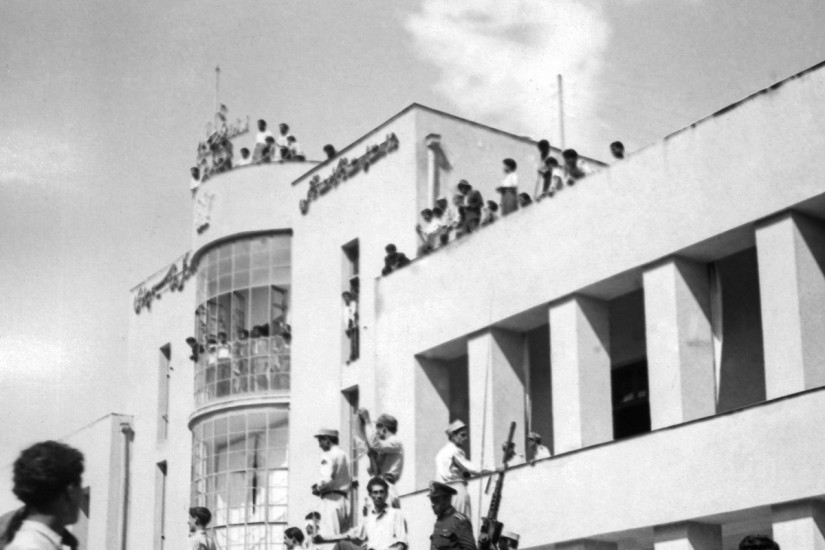On May 8, the Trump administration’s special representative for Iran, Brian Hook, blamed Mosaddeq’s downfall on domestic Iranian actors at an event hosted by the Center for Strategic and International Studies. This was despite the fact that Hook’s own State Department published a long-overdue volume of the “Foreign Relations of the United States” series in 2017 that was full of declassified CIA documents confirming the United States’ covert role in the coup.
Hook claimed that these documents demonstrated that Mosaddeq was overthrown by a coalition of Iranian actors, including Iran’s Shiite Muslim clergy, thereby eliding the CIA’s central role in recruiting, mobilizing, and coordinating these Iranian coup plotters. He pinned the blame for Mosaddeq’s downfall on Iran’s clergy: “The current religious leaders don’t want to remind people that the religious establishment at the time supported his overthrow,” Hook told the audience.
Iranian Foreign Minister Mohammad Javad Zarif hit back on the 66th anniversary of the coup in August, drawing parallels between the Trump administration’s current maximum pressure sanctions policy against Iran and the Anglo-American efforts in 1953 to overthrow Mosaddeq, despite the Islamic Republic’s discomfort with the memory of Mosaddeq as a symbol of secular Iranian nationalism.
Few professional historians take seriously Hook’s argument that the United States played no role or a marginal one in toppling Mosaddeq. In fact, the CIA’s covert operation to topple Mosaddeq, codenamed TPAJAX, was one of the worst-kept secrets of the Cold War. Just days after the coup, the U.S. ambassador in Tehran, Loy Henderson, reported to Washington a “widespread” rumor in Tehran that the United States was behind the fall of Mosaddeq. Associates of Iran’s new post-coup prime minister, Gen. Fazlollah Zahedi, had reportedly been saying that Iran was “deeply indebted to [the] Americans” for the success of their efforts.
For decades, both Britain and the United States publicly denied their roles in the 1953 coup so as not to embarrass the shah or endanger their close political and economic ties with Iran. With the overthrow of the shah in 1979, U.S. and British intelligence officers published memoirs, as detailed by the historian Shiva Balaghi, boasting of their roles in toppling Mosaddeq.
Nonetheless, it was not until March 2000, in the midst of a brief detente between Iran and the United States, that then-U.S. Secretary of State Madeleine Albright officially acknowledged that the “United States played a significant role in orchestrating the overthrow of Iran’s popular prime minister, Mohammad Mosaddeq.” She described the coup as “a setback for Iran’s political development” and empathized with Iranians who “continue to resent this intervention by America in their internal affairs.”
